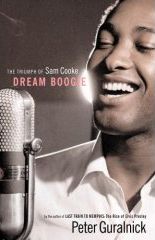 • Dream Boogie: The Triumph of Sam Cooke, by Peter Guralnick, Little, Brown, 2005
• Dream Boogie: The Triumph of Sam Cooke, by Peter Guralnick, Little, Brown, 2005
Possessing one of the greatest voices of the 20th Century, Sam Cooke’s legacy is long and deep. Uncloudy Days: The Gospel Encyclopedia describes Cooke as “one of Gospel and Soul music’s most important ambassadors.”
He composed gospel classics like ‘Touch The Hem of His Garment’ that are still sung in churches today. His numerous pop hits – including ‘Another Saturday Night,’ ‘Chain Gang.’ ‘Twistin’ the Night Away,’ and ‘Cupid’ continue to be covered more than forty years after his passing, and as a vocalist he inspired everyone from Otis Redding to Bob Marley, Rod Stewart, Al Green and Aaron Neville.
Cooke was born in 1931. His father, an itinerant Holiness pastor, eventually settled down in Chicago, and put four of his kids together as the Singing Children, traveling from church to church performing.
At sixteen Cooke joined the Highway QCs, quickly gaining a following for his smooth, sophisticated singing style and movie star good looks. The QCs modeled their sound after the Soul Stirrers, one of the premier gospel groups of the day. When that group lost their lead vocalist in 1950, they brought in Sam as his replacement, and grew even more popular.
One rarely discussed facet of traveling gospel groups during the 1950s was the sexuality. There were always women willing to proffer carnal pleasures, and Cooke was more than happy to partake.
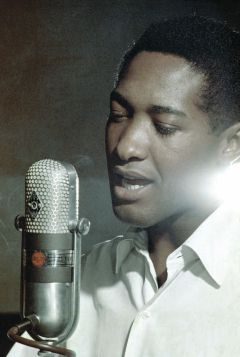 In Dream Boogie, Peter Guralnick tells us that from all accounts, this was simply the way it was on the Gospel road.
In Dream Boogie, Peter Guralnick tells us that from all accounts, this was simply the way it was on the Gospel road.
Cooke was Gospel’s sex symbol, and played it for all it was worth. At 21 years old, he had three different women pregnant.
Shortly after his first pop record hit he was pulled off of stage and arrested, charged with failing to provide for a child he had fathered the previous year.
Eventually he learned to be more discreet. While the exploits continued privately, his public persona was far removed from the reality. In Sepia magazine he told of the temptations he faced after moving into the pop scene, where he found himself “smack dab in the middle of a sinful world.”
He avoided temptation, he wrote, by applying his parents’ “steadying advice” and spending time “in silent prayer.”
Cooke had written many of the Stirrer’s biggest hits, and they toured constantly, but after half a decade with the group, he was still living in a rented basement suite. It was risky leaving the gospel circuit for pop: singing popular tunes was equated by many in the church with singing for the Devil.
If he gambled and failed, there was a good chance he wouldn’t be welcomed back.
After deliberating for over a year, he finally moved over to pop, and in 1957 had a #1 hit the first time out, with ‘You Send Me.’
From there on, the hits continued, recording over 40 chart hits before his death seven years later.
An enigmatic personality, nearly everyone who knew him spoke of his warmth and kindness. If he had money, you had money. He was comfortable in any situation, from hanging out with porters and underlings to rubbing elbows with the elite. Regardless of who he was dealing with, he invariably showed respect. He rarely left anyone behind, keeping family and friends close throughout his career, and employing many of his gospel cronies when he moved over to pop.
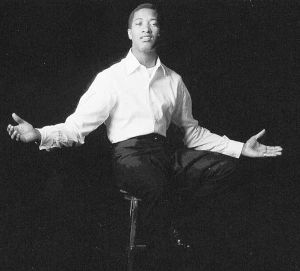 But there was another side. He remained a flagrant womanizer, yet could fly into a jealous rage if anyone paid his wife a compliment, convinced that she was cheating on him.
But there was another side. He remained a flagrant womanizer, yet could fly into a jealous rage if anyone paid his wife a compliment, convinced that she was cheating on him.
If he felt he was being wronged, his could lash out, regardless of the cost. Even his closest friends admit they didn’t always know what he thought.
Lou Rawls had come up at the same time, moving from gospel into a successful pop career, and sang on many of Cooke’s recordings. He described Cooke as “a shining light” and respected him immensely – yet admits in all their years together Cooke never once shared feelings about his faith or his family.
Near the end of his life Cooke became close to Cassius Clay, who was about to join the Nation of Islam and adopt the name Muhammad Ali. When the Black Muslim group began to pursue Cooke, he was put off, referring to them as “con artists.”
A member of the Five Blind Boys of Alabama commented on encountering Cooke after the hits began; “Sam had been in the gospel field, and he know there weren’t no saints over there, either. He said, ‘I’m the same Sam Cook [he added the ‘e’ after he began recording pop] that was singing, “Jesus Give Me Water.”’ He said, ‘I haven’t changed. I’m still Sam.”
Cooke continued to record spirituals, and would sing with the Soul Stirrers when the opportunity presented itself. He was a tireless supporter of the music, and claimed in interviews that “gospel music must come back.”
A 1962 interview sheds some light on his feelings about crossing over. “I still have my religious beliefs. Our forebears thought you couldn’t sing [both] pops and spirituals, but I have rationalized this. I can do anything I want and still have my religious beliefs. My philosophy of life is: Do whatever is best for Sam Cooke.”
Part of doing what was best for Sam meant learning the business inside and out. A voracious reader, he possessed a keen intellect, and was one of the first artists – black or white – to start his own record label (SAR) releasing gospel and R&B acts.
Cooke also owned the publishing rights to his songs, when that was almost unheard of in the music industry. He took on Allen Klein as manager; Klein would go on to handle the Beatles and the Rolling Stones.
The final year of his life, Cooke wrote and recorded ‘A Change Is Gonna Come.’ His greatest work, the song was inspired by the civil rights movement, and is equal to many of the great gospel standards, offering irrefutable proof that he had not abandoned moral issues when he started singing popular music.
That same year Cooke’s young son drowned after a mishap in the family pool. Never fully recovering from the incident, his last year was by far his darkest. Cooke’s own death by shooting was shrouded in mystery, and while many theories have been postulated, the only thing known for sure was that one of the all time great voices had been silenced.
Guralnick never sugarcoats, telling Sam’s story without sensationalizing – and leaves us with a picture of a flawed, but beautiful human being.
• Sam Cooke, One Night Stand! Sam Cooke Live at the Harlem Square Club, RCA/Legacy, 2005
• Sam Cooke, Night Beat, RCA/Legacy, 2005
• Sam Cooke, The Best of Sam Cooke, RCA/Legacy, 2005
RCA/Legacy has recently reissued three of Cooke’s classic titles. All feature remastered sound, new liner notes and improved packaging.
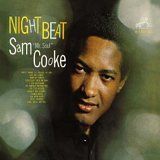 Something of a departure, 1963’s Night Beat featured Cooke in an intimate late night setting, singing blues and gospel accompanied by a small combo. One track features just Sam, stand-up bass, and a smattering of cymbals. Even a take on ‘Shake, Rattle and Roll’ is as relaxed as can be. The session featured jazz guitar great Barney Kessel, Billy Preston on organ, and studio drum legend Hal Blaine.
Something of a departure, 1963’s Night Beat featured Cooke in an intimate late night setting, singing blues and gospel accompanied by a small combo. One track features just Sam, stand-up bass, and a smattering of cymbals. Even a take on ‘Shake, Rattle and Roll’ is as relaxed as can be. The session featured jazz guitar great Barney Kessel, Billy Preston on organ, and studio drum legend Hal Blaine.
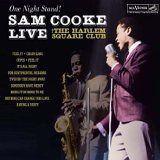 Harlem Square first saw release in 1985, more than 20 years after it was recorded. During his lifetime RCA choose to leave this on the shelf – and instead released Sam Cooke At The Copa.
Harlem Square first saw release in 1985, more than 20 years after it was recorded. During his lifetime RCA choose to leave this on the shelf – and instead released Sam Cooke At The Copa.
The latter was designed to give him credibility alongside Nat King Cole, Harry Belafonte and other blacks that had crossed over to mass appeal. In other words, custom made for a white audience. It was safe, sanitized, and totally missed what made Cooke special.
When Harlem Square finally came out, it was a revelation, offering Cooke at his incendiary best, with legendary saxophonist King Curtis leading the band, playing a smokin’ set as the audience cries out for more.
Outside of compilations, these are the two essential building blocks for a Sam Cooke library.
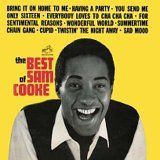 There are many compilations of Cooke’s material available, from a box set to a SACD (Portrait of a Legend). Best Of Sam Cooke is a basic, straightforward compilation, the only one released during his lifetime. The original dozen tracks are augmented by three more, and while this was the album everyone owned way back when, it can’t come close to Legend, which boasts 30 tracks on one disc, plus stunning sound.
There are many compilations of Cooke’s material available, from a box set to a SACD (Portrait of a Legend). Best Of Sam Cooke is a basic, straightforward compilation, the only one released during his lifetime. The original dozen tracks are augmented by three more, and while this was the album everyone owned way back when, it can’t come close to Legend, which boasts 30 tracks on one disc, plus stunning sound.
